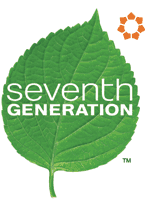green cleaning: harmful cleaners
The most prevalent class of chemicals that harm human health and the earth's environment are volatile organic compounds (VOCs) that are emitted from specific solids and liquids, like personal and household cleaning products. VOCs cause indoor and outdoor pollution, but the pollution concentration is two to five times stronger indoors than outdoors. When exposed to less, health effects include eye and respiratory tract irritation, headaches, dizziness, nausea, visual disorders, loss of coordination, and memory impairment. When exposed to VOCs consistently, one is at risk for damaged kidneys, liver, and nervous system. Exposure to VOCs is known to cause asthma, harm the lung function, and cause cancer. VOCs such as ethylene-based glycol ethers, a water-soluble solvent found in many cleaning products, and terpenes, a class of chemicals found in pine, lemon, and orange oils contaminate the environment. Solvents are organic and inorganic compounds used in cleaning products to dissolve, disperse, or carry solids, cases, or other liquids. They are capable of easily getting into a human blood stream and causing cancer. Since solvents are not biodegradable, meaning bacteria cannot break them down, many exist in nature that pollute the earth's air, water, and soil. In addition to the harmful VOCs they emit, cleaning products contain chemicals that pollute and disturb the ecosystems on earth. Examples of such chemicals are phosphates and ethylenediaminetetraacetic acid (EDTA), chemicals that are often used in detergents to boost their cleaning power. Phosphates and EDTA cause excessive growth of aquatic weeds and algae that suck up all the oxygen and nutrients in a river, causing a limited supply of oxygen for the fish and a decrease in fish population. Although they do not seem significant compared to the rest of the organisms in the environment, fish play an important role in the food chain, the pathway which energy is passed from one feeding level to the next. If there are less fish, then the organisms at the level above them will decrease in population as well, since they have less food to survive on. Chemicals found in personal cleaners such as shampoos and soaps have equally negative effects on the environment as household cleaners. For example, limonene, an organic solvent that has only hydrogen and carbon, is found in most shampoo and facial cleaning products. However, limonene has the potential to damage wildlife and the environment through water contamination.
green cleaning: alternative cleaners

In order to reduce one's chemical emissions, one can make homemade household cleaners or purchase prepared products that are safe for the environment and effective at their job. Making one's own cleaning products, can help save wildlife and protect the environment, while it is cheaper and better for one's health. Baking soda can be used to deodorizer and also to scrub surfaces the same way as store-bought grit cleaners. It can also be mixed with many other natural cleaners, like lemons and vinegars, to make safe and effective all-purpose cleaners. White vinegar cleans like an all-purpose cleaner. One can mix one part water with one part vinegar in a spray bottle and use to clean almost any surface, as it is a natural disinfectant and deodorizer. Vinegar can also be used to clean the kitchen, bathroom, and even as a natural fabric softener. Lemon juice can dissolve soap scum and hard water deposits. One can mix lemon juice with vinegar and baking soda to make cleaning pastes. One can use the lemon as a sponge to scrub dishes, surfaces, and stains, by cutting a lemon in half and sprinkling it with baking soda. Washing soda can be used as a stain remover and general cleaner in laundry loads. Hydrogen peroxide can be used as a disinfector and bleach. When buying personal and household cleaning products, read their labels and avoid any with toxic ingredients previously mentioned. Here are a few well-known and trusted eco-friendly brands of cleaning products: Mrs. Meyers, Clean Day, Dropps, Seventh Generation, Twist, and Method. Markets such as Whole Foods sell personal cleaners such as shampoo that are made without chemicals that harm the environment.

